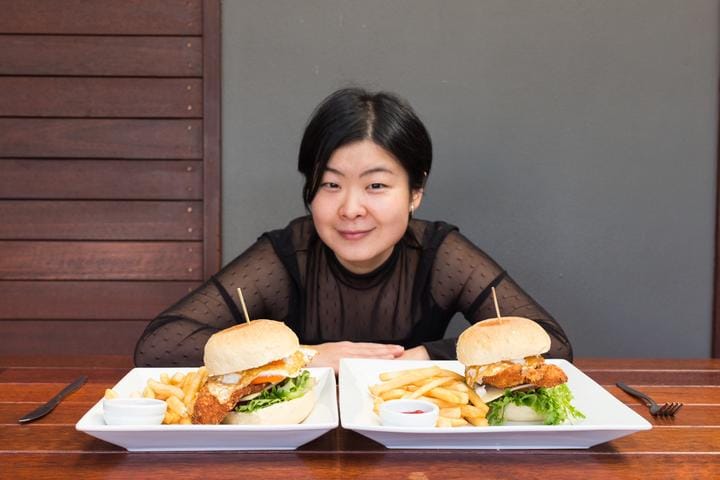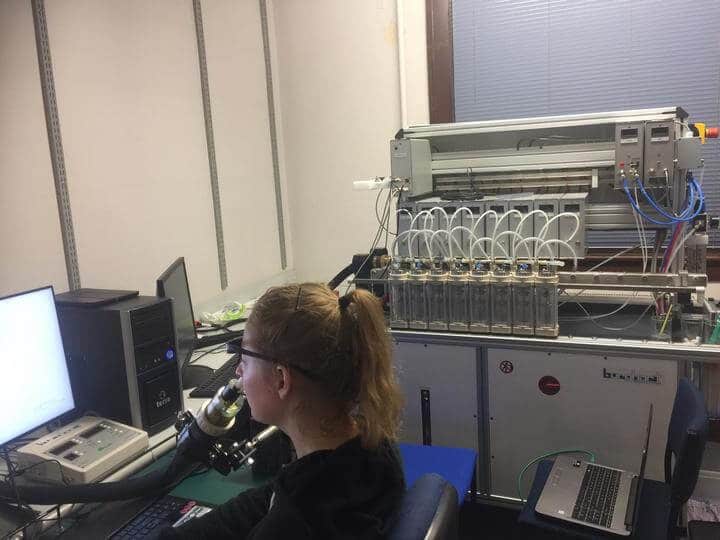An Otago University scientist specialising in smell and taste has joined an international team scrambling to gather data about early warning signs of Covid-19 infection.
Clinicians from many countries have now noted a sudden loss of smell and taste was the first symptom of the virus for many otherwise healthy people, who were later found to have Covid-19.
Even with no other symptoms, loss of smell is important enough to warn clinicians to use full protective equipment around a patient, who should be isolated on that basis alone, a professional body of UK ear nose and throat specialists has warned public health experts this week.
Otago University senior lecturer Dr Mei Peng specialises in olfactory senses, and is seeking New Zealanders who have or have had the disease, and are willing to answer a short questionnaire about changes they have experienced to their sense of smell or taste, which will contribute to an international collaboration to learn more.
She said global reports increasingly show this can happen long before other symptoms, and awareness and understanding of it could help reduce the spread.
“We want to use it as an early warning sign for self-screening – it’s become very clear Covid-19 has a very long incubation period, and during this incubation period we could spread the virus to other people, so the earlier we detect the infections, the earlier we could help to control it.

“It’s certainly something that we should keep an eye out for – sudden loss of smell is rare in healthy young people, so if that kind of symptom appears we definitely should keep an eye on it, and possibly contact clinicians and do better self-isolation.”
Since the project was launched by US scientists just over a week ago more than 300 researchers have joined from more than 20 countries. Without resources or time to work on the mechanism causing the symptoms, they are gathering standardised observational data about how and when the sensory changes happen, and the patterns in different places.
- If you have symptoms of the coronavirus, call the NZ Covid-19 Healthline on 0800 358 5453 (+64 9 358 5453 for international SIMs) or call your GP – don’t show up at a medical centre
Smell is responsible for most of our sense of taste, Dr Peng said.
“The findings so far show a quite consistent loss of smell, but proportions of people who experience it varies for countries.
“In Germany the reports are two out of three people experience a sudden loss of smell and taste before any other symptoms. But in South Korea, their reported statistic is one third.”
One patient from the US, who the group has already worked with, was a useful test case.
“It’s very interesting, she had a very sudden loss of smell and taste, so we asked her to try a few things – to try a dilute sugar solution to see if she could perceive sweetness, and sour, bitter and spicy food, to see if she could taste that.
“The person would report that they don’t taste it as much. They couldn’t taste hot sauce anymore – she knows her usual tolerance, and she usually couldn’t tolerate that hot sauce.”
Those tests also demonstrated a key alarm bell the group want to sound.
“She had very mild symptoms otherwise, and recovered very quickly, but that loss of smell was very noticeable.
“That makes us feel a little bit alarmed, because a very healthy young person could have no other symptoms, but have these very mild symptoms that you could easily ignore, and could also be spreading that virus to other people – so it’s worthwhile looking into it.”

Some people diagnosed with Covid-19 have reported a sudden loss of smell and taste (file picture). Photo: 123RF
Dr Peng said the research is moving rapidly. The team are currently finalising the questions they want to ask patients, including whether to ask them to try simple taste tests, and are translating the questionnaire into all the languages it will be collected in.
They hope to distribute the questionnaire in the next week and gather and analyse the answers soon afterwards. She hopes New Zealand patients – or people who believe they may have been exposed to the disease – will get in touch immediately, to help their efforts.
“This epidemic is affecting us all, and it’s crucial that we all help in any way we can.”
She said changes in smell and taste, have previously been linked to other diseases.
“Impaired smell ability can be linked to Parkinson’s Disease, Alzheimer’s Disease, dementias – there’s quite a few links between smell perception and the neurological disease.
“Nerve degeneration is what people believe it is, but it’s hard research to do on human participants – there’s practical challenges.”
Dr Peng said when Covid-19 patients recover from the illness their sense of smell returns – the loss of smell is not permanent.
The research initiative was started by researchers at the Monell Centre, University of Pennsylvania, and US Neuroscience and Society Lab.
Dr Mei Peng is seeking people who have been diagnosed with the virus, or may have been exposed to it, to take part in the study; Email Dr Peng on [email protected]
Source: rnz.co.nz Republsihed by arrangement.

